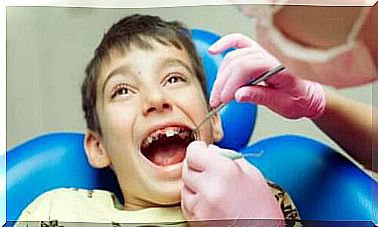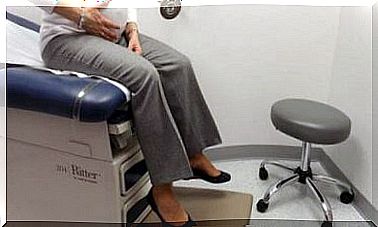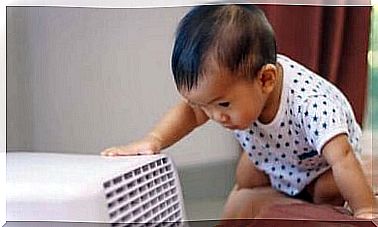What To Do If My Child Is Underweight?
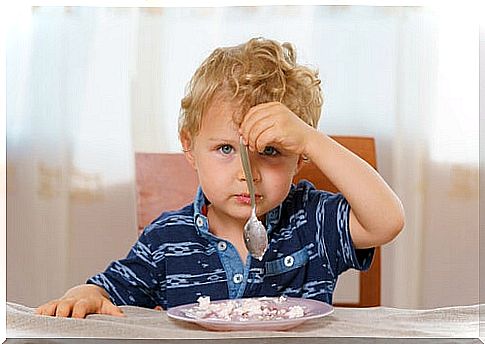
My son is underweight. What can I do to help him? This question can generate some anxiety in parents when their little one has some food problem. Here’s what you need to know about it.
In society, being overweight is a disliked condition, especially in the little ones of the house. Likewise, being underweight can cause reports from other people.
An underweight child should alert parents if the root of the problem is not known . Adults often make the big mistake of letting kids eat all the junk food they want, thinking it will help them gain weight healthily. Of course, that’s not the case at all.
In fact, the best way to get little ones to gain weight is to change these bad eating habits. A good change begins by knowing and choosing foods with a high number of acceptable nutrients, vitamins and calories.
First step to follow if my child is underweight
The first thing to do will always be to consult your doctor. He will determine what is best for the child. Carrying out routine tests, accompanied by a medical opinion, will always be the best alternative.
What are the reasons my child is underweight?
Genetic inheritance
It is possible for the child to inherit from their parents their constitution. If they are thin, he will be too thin as a result. If this is not the case, a medical evaluation should be carried out to determine what is the reason for the low weight.
Little interest in food
Children like to eat. Not everything, of course; however, there is a great variety of foods that they accept and appreciate. For this reason, if the child shows little interest in eating, this could indicate a medical or psychological problem.
Another cause could be a lack of hormone control or a low metabolism, such as diabetes or hyperthyroidism. It is also possible that the child is allergic to certain foods or suffers from gastrointestinal problems, resulting in him finding it difficult to eat.

Bullying
In the pre-adolescent stage, children often develop eating disorders as a result of social pressures. Bullying, in this sense, can lead to bulimia.
Physical activity
Excess of physical activity promotes an accelerated metabolism. In some cases, this situation does not allow to assimilate food correctly.
How can I make sure that my child has the ideal weight?
In childhood, the ideal weight is essential to enjoy good health over the long term. Exercise and good quality nutrition will keep children healthy. In addition, you can consider the following aspects:
Frequent meals
Feeding underweight children frequently is a good strategy. What matters is not only what the baby eats, but also how often he eats it. Young children still have small stomachs and need to eat five or six times a day.
Healthy habits in the family
If the child and the rest of the family maintain good eating habits at home, even the little ones will easily adopt this lifestyle. Which, of course, promotes stable health.
So, combining an effective exercise routine with a healthy diet is certainly a smart attitude. Exercise greatly stimulates the appetite. Practicing physical activity before meals, therefore, can be of great use.
In addition to everything that has already been said, it is recommended to avoid unhealthy foods such as pastries, fizzy drinks, biscuits and fast food. The risk of contracting health problems (such as diabetes or heart disease, due to excess fat) from ingesting such foods increases dramatically.
What should I do to get the baby to gain weight?
The first thing to do will be to re-examine the family’s eating habits. Swapping them for healthier ones is the best choice. So if you want to gain weight in a healthy way, avoid high-sugar drinks and foods that are high in calories.
Conversely, the best alternative is those foods that have a balanced level of calories and nutrients, and that provide vitamins and minerals. Having a wide variety of these foods can help develop a multitude of menus that the child may enjoy.
It is recommended to adopt a diet rich in carbohydrates (pasta, bread, cereals), portions of fruit and vegetables, proteins (meat, fish, legumes, eggs) and dairy products. In return, we must avoid excessive consumption of fiber: wholemeal rice and pasta reduce the child’s appetite.
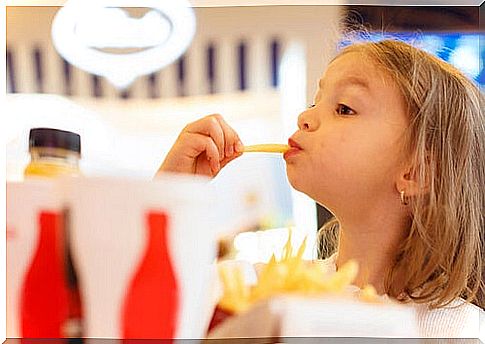
On the other hand, fats are not always harmful to the body. For example, vegetable fats are a nutrient for a quality diet. Seeds and nuts are great alternatives to complement a nutritious diet. They are the best choice for a mid-afternoon snack.
For children who are fruit lovers, juices with milk, natural ice creams and fruit salads are ideal. As for vegetables, to make them more palatable it is possible to prepare excellent creams, omelettes and puddings.
The purpose of this dietary change is to provide the foods necessary for the baby to be well fed and to gain weight in a healthy way. Sometimes, changes are difficult but necessary, especially if the health of our little ones is at stake.




